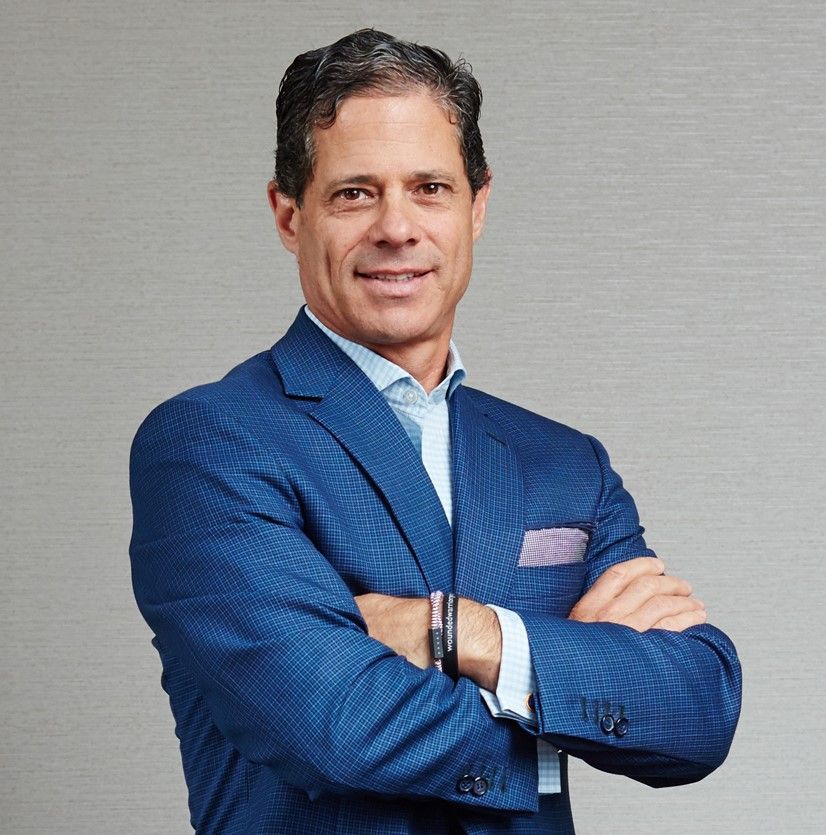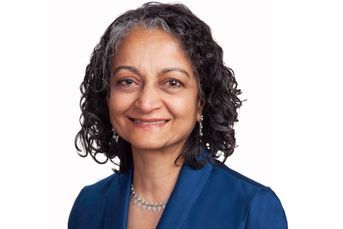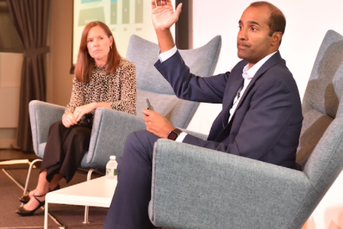Q&A: iCapital Network’s CEO Lawrence Calcano

Calcano talks automation, the firm’s recent acquisition of Wells Fargo’s alternative investments platform and expectations for tech moving forward

iCapital Network’s pair of recent acquisitions combined with the firm’s focus on tech-driven automation of alternative investments has served as the perfect formula for its growth trajectory this year.
At the helm is chairman and CEO Lawrence Calcano, who has zeroed in on building a technology based alternative investments process that is fully automated. While continuously building out that infrastructure, the seven-year-old startup has grown to service nearly $58 billion in client assets across more than 720 funds upon the completion of the Artivest and Wells Fargo acquisitions.
By comparison, iCapital serviced just $8 billion in client assets at the start of 2019, according to the company’s website.
That type of growth has coincided with a number of traditional firms that have already tapped iCapital to provide independent registered investment advisers easier access to alternative investments. Schwab Advisor Services adopted the platform last October to allow its advisers to pre-qualify clients and provide them with research on the funds. iCapital also powers alternative platforms at JPMorgan Chase and Fidelity Investments.
iCapital’s foundation is based on the belief that leveraging technology is the only way to manage and scale access to these types of investments as financial advisers’ appetite for alternative asset classes increases, Calcano said in an interview.
“From an automation standpoint, to connect all of these firms into this ecosystem has been a very important part of our technology journey,” Calcano said. “Ultimately, our mission is to power the alternative investment industry.”
Calcano shared with InvestmentNews his primary focus on automation, the strategy behind the firm’s recent acquisition of Wells Fargo’s alternative investments feeder fund platform, and his expectations for the technology landscape in 2020 and beyond. What follows is an edited version of Calcano’s conversation with InvestmentNews.
InvestmentNews: Since assuming your role as CEO of iCapital in Jan. 2014, what shifts have you seen in the technology landscape?
Lawrence Calcano: I’d say the shift is less about technology change and more about implementation of technology. Historically, the alternative asset classes had no technology at all, it has been a highly manual process in terms of how people subscribe to and receive reports on investments they make. Also, alternative asset classes have been the purview of large institutions that wrote large checks into private equity funds or hedge funds, so you had a one-to-one relationship.
What’s happening now is the democratizing of the asset class — there’s a very significant amount of interest on the part of financial advisers and their clients to have access to the best alternative managers in the market.
There is a shift of this one-to-one relationship to one-to-many, where, instead of an investor writing a $500 million check to one manager, you have potentially thousands of investors writing $25,000 or $100,000 checks into one manager. This is where technology becomes absolutely necessary to be able to manage and scale that.
As more advisors and clients are interested in this asset class, the need for technology is significant and so we’re building that infrastructure to accommodate this whole democratization process and to enable high net worth advisors and their clients to get really robust institutional style access to the asset class. It’s automating an industry that’s never been automated before.
IN: How do iCapital’s recent acquisitions fit into your broader business strategy?
LC: These transactions are a continuation of the alternative investments ecosystem we’ve been trying to build. When you think about building an ecosystem, it’s intended to benefit every one — all advisers whether they sit at Morgan Stanley or an independent adviser. This idea is one of the reasons why, I think, we’ve been able to grow and scale the business through acquisitions and organically.
A lot of times when technology is introduced to an industry, people describe that technology as being disruptive — something that changes the way everyone operates.
We’ve never really thought of ourselves as a disruptor as much as an enabler, and what we’re enabling is automation of the manual processes that exist. We have the benefit of enabling a set of relationships and transactions and that has helped us undertake the acquisitions.
With Wells Fargo being the most recent, it’s an outstanding franchise with a strong position in the market and together, we can help further automation in alternative assets and maybe truly make a difference in the industry.
It’s very exciting to help them push their automation further in this deal, and I think the Artivest deal is similar. To us, it’s another set of building blocks and they have an excellent technology which will incorporate into our stack. Artivest also had a set of outstanding relationships with banks and wealth managers, which we will welcome into the iCapital family.
IN: What emerging trends do you anticipate the industry will see more of in the short-term and long-term?
LC: The reality is, building technology is never done and it continues to evolve. Moving forward, we’re going to keep seeing a broader adoption of the asset class and including alternative investments in defined contribution plans.
There’s a lot of dialogue and discussion around the Securities and Exchange Commission expanding and updating the definition for various investors who will be permitted to invest with these assets — so there are trends in the marketplace that would allow more people to have access to these institutional style products.
As more people have access to these assets, it’s our responsibility to continue to build out the technology to accommodate that and to provide access to very high quality products.
There is also an industry obligation to really educate people, particularly if the definitions of who can invest broadens. We’re committed to that education and you’ll see a number of partnerships from us in regards to the educational initiatives that we have because we think it’s really critical.
IN: What do you think is the biggest challenge advisers face with fintech?
LC: There are a lot of companies that present a limiting view that they are either fully digital or not, but we don’t subscribe to that notion. We believe in that hybrid model because there’s a power in the combination of outstanding human advice and technology.
What we do believe is that technology can actually help advisors deliver better advice and create a better experience for their clients. There are many clients who are very technology literate, who want to get access to information from their advisors, in part, though an electronic platform.
The future of investing for clients is about the combination of client-centric advice enabled by efficient technology infrastructure.
Learn more about reprints and licensing for this article.








